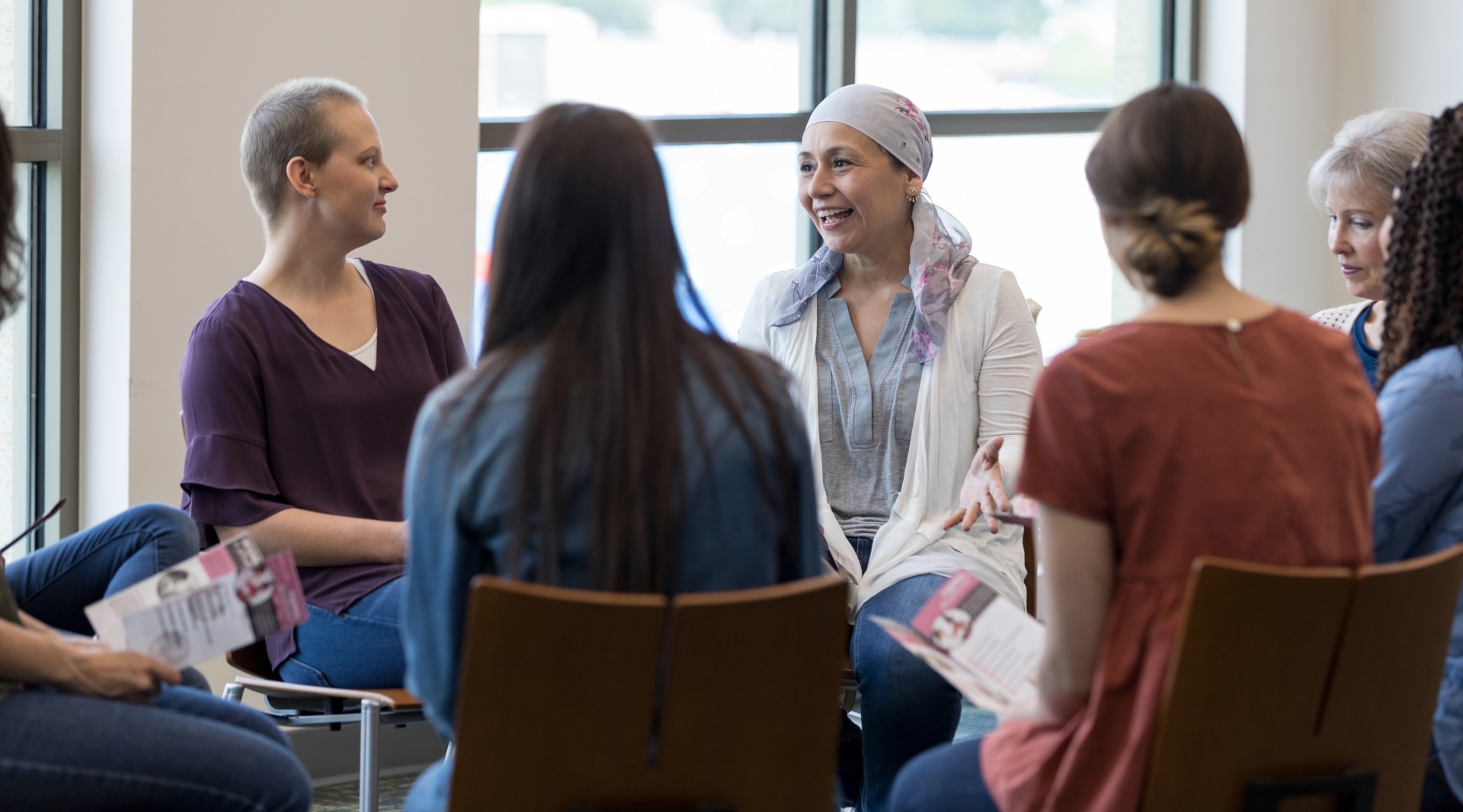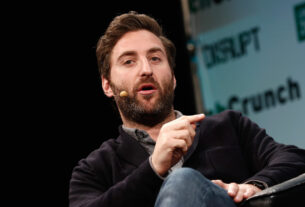When Shoshana Polakoff was diagnosed with breast cancer in 2019 at the age of 37, her life was suddenly turned upside down. With three young children at home and intense chemotherapy on the horizon, she felt overwhelmed.
As Polakoff learned more about the road ahead, she realized that in addition to questions about her health and treatment, she also had concerns about how to navigate her situation as a religiously observant Jew. For example, some women who undergo breast reconstruction surgery use tattooing to recreate nipples, while traditional interpretations of Jewish law generally prohibit tattoos.
Seeking guidance, Polakoff reached out to Sharsheret, a Jewish nonprofit organization that supports women affected by breast or ovarian cancer.
“I didn’t know who Sharsheret was or what they did, but the first social worker I spoke with helped comfort me,” Polakoff recalled. “We talked about what to expect next and how cancer might intersect with being Jewish while undergoing treatment. After I got off the phone with her, I felt much more comfortable.”
Polakoff’s treatment spanned nearly a year, during which Sharsheret provided continual support. She worked with a team that understood the complexities of Jewish life and religious law. She also consulted with a female religious adviser, known as a yoetzet halachah, to address concerns like how chemotherapy might affect her practice of periodic immersion in a mikvah ritual bath.
After her cancer went into remission, Polakoff became an ambassador for Sharsheret, sharing her experiences to help others. Recently, she began speaking to participants in Sharsheret’s Global Health Leadership Training Institute. Launched in January 2022 with support from Micah Philanthropies, the program trains Jewish communal advisers to guide women through cancer treatment and beyond with cultural and religious sensitivity.
“Those in leadership roles within the Jewish community who provide counsel to others require unique training to offer appropriate guidance during the cancer treatment process,” said Melissa Rosen, Sharsheret’s director of training and education. “The Global Health Leadership Training Institute empowers these leaders to support their communities with understanding and without judgment.”
Founded in 2001, Sharsheret has helped more than 275,000 women, families, healthcare professionals, and community leaders with free services, education and support. The Training Institute’s first cohort partnered with Nishmat – The Jeanie Schottenstein Center for Advanced Torah Study for Women in Israel—to train 44 women worldwide. The curriculum, developed by Sharsheret’s experts and Nishmat’s religious advisers, addressed medical, halachic and emotional issues.
“Participation in Sharsheret’s program enhanced my understanding of medical and psychological issues women face when confronting a cancer diagnosis,” said Hindy Feder, a yoetzet halachah at Nishmat. “It also allowed me to delve into complex halachic questions relevant to these cases and deliver advice with sensitivity.”
Since its inception, the program has expanded to include institutions like Hadar, Yeshivat Maharat, Neshama: the Association of Jewish Chaplains, the Orthodox Union Women’s Initiative, the Jewish Orthodox Feminist Alliance, the Academy for Jewish Religion, the Women’s Rabbinic Network and the Central Conference of American Rabbis. The trainings, typically four to 10 hours, introduce participants to cancer’s intersection with Jewish life and provide tools for creating supportive communities.
One recurring issue is tattooing, used in radiation therapy and sometimes breast reconstruction.
“This can be both a halachic and a cultural issue,” Rosen said. “One woman, unaware tattoos were part of her treatment, literally jumped off the table and ran out of the room when she heard about it. An adviser could have helped her process the information and address any halachic questions beforehand.”
The Sharsheret program trains rabbis, female religious advisers, teachers, mikvah attendants and other religious leaders. Participants stay connected through WhatsApp groups and have access to educational materials and online resources. Each cohort is designed to meet the specific needs of the community it represents, so each cohort is different.
“Ideally, culture or religion shouldn’t be an obstacle,” Polakoff said. “A good adviser can help shoulder the burden for a woman going through this, providing knowledge and sensitivity for a deeply personal journey. The ability to focus on treatment and recovery without worrying about non-medical needs is an incredible gift.”
Ann Pava, president of Micah Philanthropies, emphasized Sharsheret’s innovative approach.
“We’ve seen firsthand the impact that training workshops have had on the women being trained — and on those who benefit from the extraordinary care they provide,” Pava said.
If you’re interested in convening a group of community leaders to participate in the training program, please contact Sharsheret’s director of training and education, Melissa Rosen, at [email protected].
Keep Jewish Stories in Focus.
JR has documented Jewish history in real-time for over a century. Keep our journalism strong by joining us in supporting independent, award-winning reporting.




